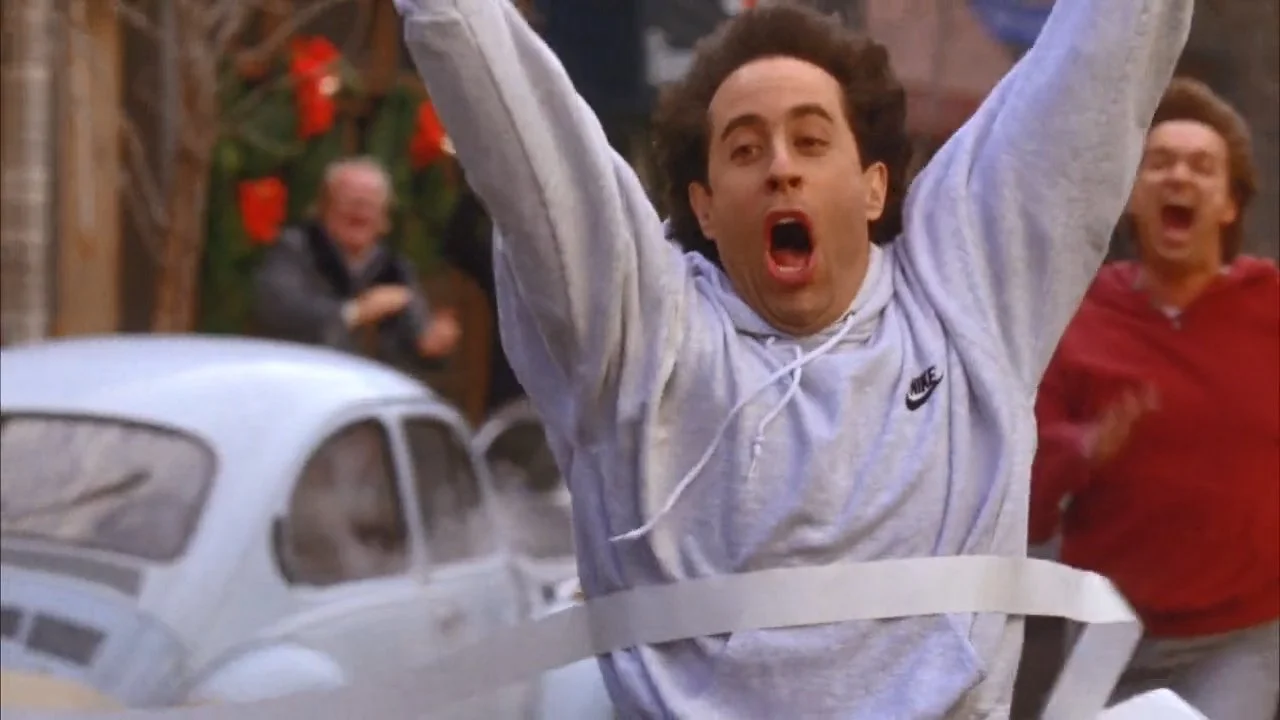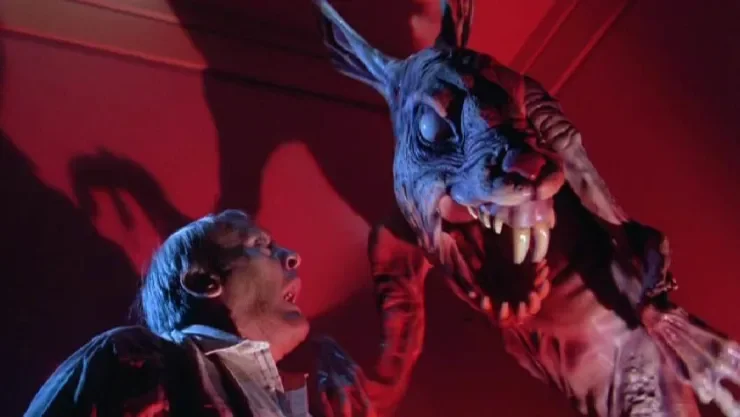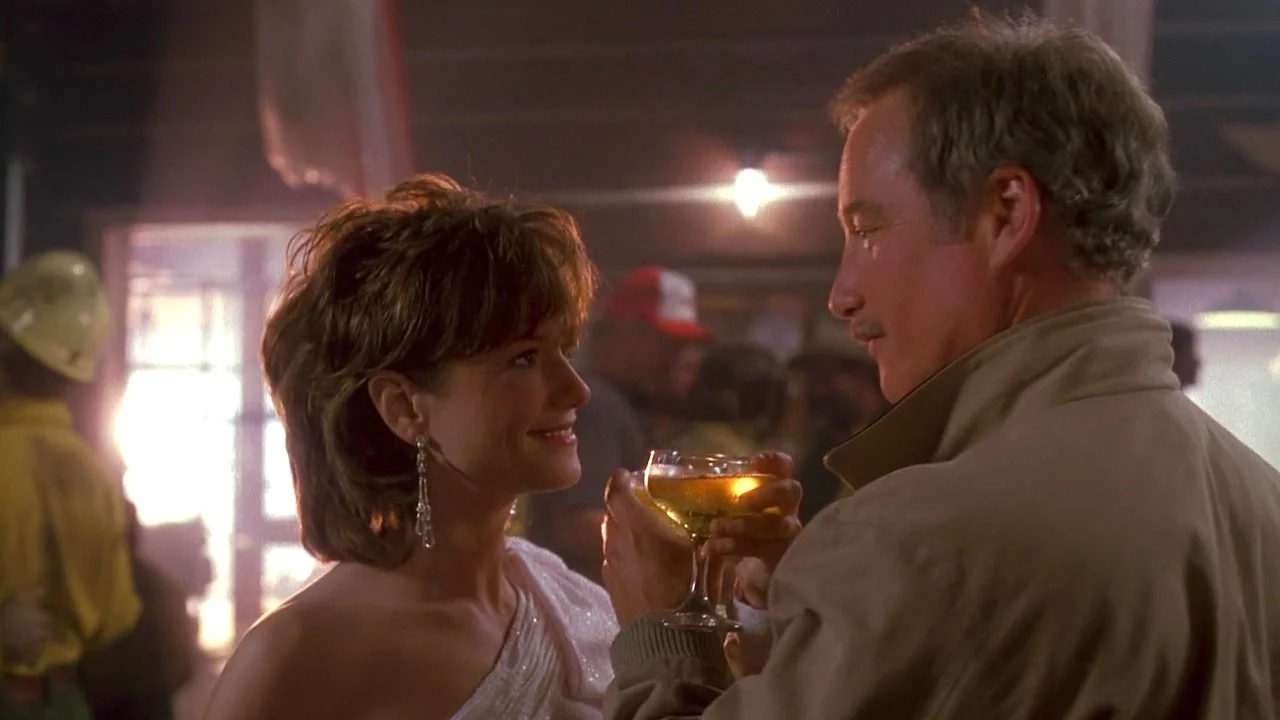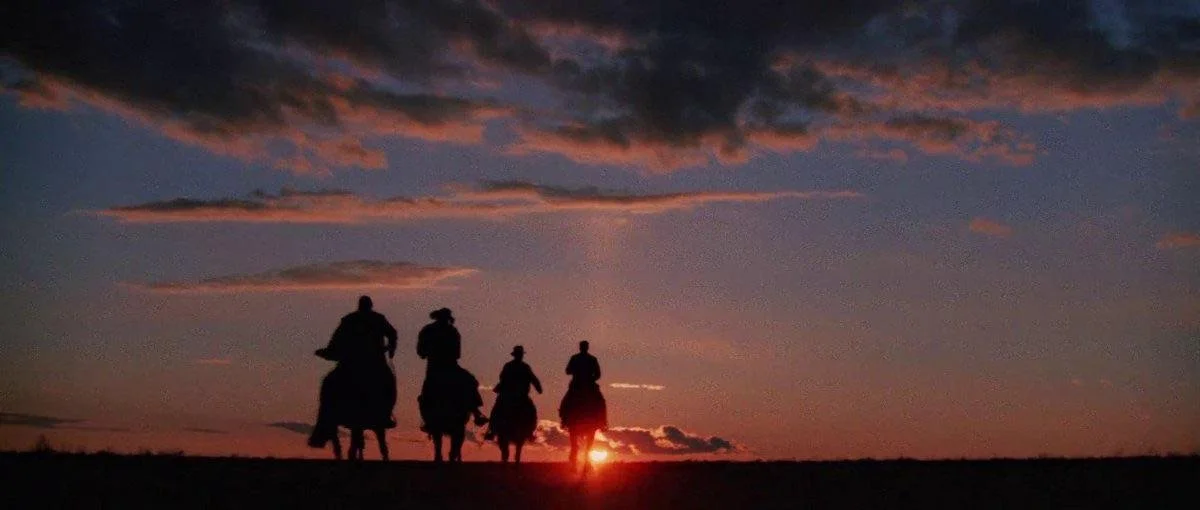Recent Articles
Sofia Coppola and The (Possible) Reclamation of MARIE ANTOINETTE
MARIE ANTOINETTE is arguably misunderstood, both as a film and as a subject. I was delighted and surprised to see how much I ended up liking Sofia Coppola’s third feature, a film that debuted to mixed reception back in 2006. However, why did I fall short of loving it?
MARIE ANTOINETTE has had a really fascinating lifecycle of discourse.
The movie, I mean. Not the person.
Well, maybe the person, too.
Anyway.
I remember pretty acutely that Sofia Coppola’s third feature and follow-up to LOST IN TRANSLATION, the film that won her a screenwriting Oscar, was fairly polarizing at the time of its release. The written record seems to back this memory up; it currently has a 57% rating on Rotten Tomatoes (not that the famous aggregator site has ever been a real reflection on a movie’s true qualities), and a review of some Wikipedia snippets confirm some critics at the time really loved it, while others….really didn’t.
General audiences didn’t seem particularly high on it either. Its CinemaScore landed right in the middle, at a C*. It made its $40 million budget back, but just barely: it made $60 million worldwide, which admittedly isn’t exactly nothing. Still, LOST IN TRANSLATION made $118 million worldwide off a $4 million budget, so MARIE ANTOINETTE’s relative failure must have given producers pause.
*Although, again, a CinemaScore is really only a measure of how much fun a given average audience just had, period. Consider that EYES WIDE SHUT received a D- CinemaScore, BOOGIE NIGHTS a C, while Michael Bay’s PEARL HARBOR received an A. Simply put, who gives a shit about CinemaScore?
Is any of this fair? Maybe, maybe not. All I can tell you is that, for as obsessed with LOST IN TRANSLATION I was as a lad (and, boy howdy was I), I was a little disappointed by her choice in direction for her next film. Marie Antoinette was not a historical figure I was all that interested in (I was admittedly an uncurious teenager in many ways), and the prominent usage of modern music in the trailers made me hesitate. It all felt…surface level somehow. Immature. To that end, I didn’t even see it, something that would have seemed unfathomable to me in 2004 or so.
It didn’t help that I had friends at the time who also rolled their eyes every time the movie came up in conversation. People definitely had feelings about it, although the sands of time prevent me from recalling exactly what they were, or why they were felt. But the facts were, nobody I knew really wanted to see it, I certainly wasn’t going to see it by myself, and I barely wanted to buy a ticket in the first place. So that was that.
And yet! Here in 2023, I have now seen MARIE ANTOINETTE. Furthermore, a quick scan through Letterboxd (which, because I actively use it, is in fact a completely objective way of deciding a movie’s value and worth) shows that there are many, many, many people out there who quite adore this Kirsten Dunst historical vehicle! My rushed math suggests the aggregate rating for MARIE ANTOINETTE amongst my friends is an easy four stars out of five. A reclamation appears to be at hand.
So, now having finally seen it for the first time, over sixteen years from its release, what did I think? Well, I liked it way, way, way more than I would have ever expected. Yet, it’s the first Sofia Coppola movie out of her first four (a de-facto spoiler for next week’s article, I guess) that I didn’t exactly love. This means I now have to use this space to figure out precisely why.
So…let’s find out!
MARIE ANTOINETTE (2006)
Starring: Kirsten Dunst, Jason Schwartzman, Rose Byrne, Judy Davis, Rip Torn
Directed by: Sofia Coppola
Written by: Sofia Coppola
Released: October 20, 2006
Length: 123 minutes
MARIE ANTOINETTE tells the story of…well, Marie Antoinette (Dunst), an Austrian teenager who, in 1770, becomes betrothed to the Dauphin of France (Schwartzman) in an attempt to form an alliance between the two countries. As most of you are aware, Antoinette will become the future Queen of France. As history will turn out, she will also become the final one, as the French Revolution continues to foment in the background of her rule before finally consuming the country and the monarchy by the 1780’s.
Coppola’s film, based off Antonia Fraser’s biography MARIE ANTOINETTE: THE JOURNEY, frames Antoinette as somewhat of a tragic figure, a young girl who gets married into a life of luxury and power essentially against her will, then gets swept up in the excesses afforded a woman of her stature before getting executed by the masses at the ripe old age of 37.
Whether this is a fair depiction of Antoinette is up for debate, to say the least (and probably depends on the individual). For what it’s worth, it’s probably not a discussion I’d be able to have with much clarity, given that I’m not as studied on her as a figure as many others. What I could purport to know about her are items that basically come down to legend, with the “let them eat cake” quote looming largest.
It’s easily the most well-known thing about Marie Antoinette’s short but infamous life, the ultimate “too wealthy elitist leader who is completely out of touch with the common man”, a response to the information that the peasants had run out of bread.
Naturally, she almost certainly didn’t actually say it.
The primary evidence against the claim is the fact that the quote was coined in 1765 by Jean-Jacques Rousseau in his autobiography CONFESSIONS, when Antoinette was only nine years old and hadn’t yet left her native Austria. Even in that context, it’s hard to tell whether Rousseau’s tale that spurned the phrase was itself truthful (he attributed the “let them eat cake” to simply an unnamed “great princess”). It’s equally unclear how exactly the quote got attached to Antoinette in the first place. But, in the decades after her reign, it certainly felt like something she could have said. So if pro-revolutionaries recognized the symbolic power of the phrase implied as such, what’s the harm?
Thus an entire legacy is altered permanently in culture.
So, I ask: if the “let them eat cake” quote turned out to not be anything I can attribute to her, what else do we think we “know” about Marie Antoinette?
This is the same question that MARIE ANTOINETTE has on its mind as well, and it’s probably the best prism with which to view Coppola’s film here, although it’s also what I think ultimately ruffled some feathers. The movie’s distinctive feature is its committal to depicting Marie Antoinette not necessarily as an out-of-touch member of the ruling class, but as an outsider trying her best. This runs somewhat counter to our popular understanding of her and, thus, has the vague cadence of someone stirring the pot*.
(* It should be noted that the 2001 biography Coppola’s script is technically based off of, Antonia Fraser’s Marie Antoinette: The Journey is also known for being a quite balanced and sympathetic account of her life, although it should also be noted that I have not read it.)
MARIE ANTOINETTE would seem to be an even more controversial watch in 2023, when “eat the rich” sentiment is, not unreasonably, at an all-time high. What is one to think now of a giant shopping scene set to “I Want Candy”? Couple all of that with the friendly reminder that this is a film birthed from a director who happens to be the child of one of the most well-regarded filmmakers of all time, a woman who for all intents and purposes was born on third base. Simply put, one may ask: why would I care about a rich, privileged woman’s sympathies for another rich, privileged woman?
So I get the instant hostility.
AND YET. I think it’s this marriage of creator and subject matter that gives MARIE ANTOINETTE its…something. Because what the movie seems to be about, more than class, more than French history, is about celebrity and what it means to be swept up in it, accept it, embrace it, then ultimately get destroyed by it.
A major aspect of the film are how concerned people are about Marie needing to be doing things “correctly”. She needs to act a certain way in public. Her marriage needs to be of a certain passion. She’s taking too long to provide the Dauphin a heir (her mother writes her letters on how to help things along in that regard). She’s inappropriately giving the cold shoulder to the current king’s mistress (Asia Argento). She needs to be comfortable in power, but shouldn’t enjoy it (In the film’s less subtle moments, Marie hears all the gossip directed at her as she walks through the halls of the Palace of Versailles). On and on it goes.
Her marriage is amiable, not unfulfilling. Her only role is to be by her side and be “perfect”. The only thing that allows her any sort of joy is partying and buying beautiful clothes. So, naturally, she gets advised by her own damn brother, The Holy Roman Emperor Joseph II (Danny Huston), not to do that stuff anymore. Her lavish lifestyle coincides with a major financial crisis in France, which puts her in the crosshairs of the public. She eventually sires a son, the thing everyone wanted her to do, and settles down into a family role, but it’s too late. Louis XVI’s perceived indecisions and foppish leadership has doomed him, her and the monarchy as a whole.
Her public decides they’re done with her, and they kill her. They have their reasons, but then, everybody does.
If you separate Marie Antoinette from the context of European politics and put in a more modern context of a public figure, this all sounds familiar, right?
This is more or less how we expect our most notable personalities (usually performers and entertainers, although not always!) to conduct themselves. Women are either too fat or too skinny. Men are either total assholes or they’re little smol beans that must be protected. We demand unfettered access to their personal lives, only to turn around and mock them for being “sloppy”. And lest you ever feel bad for celebrities…well, that’s what the money’s for, right?
This is an intentional line Coppola is drawing, at least it seems to me. And I think that’s why MARIE ANTOINETTE is worth checking out at least once to see how it hits you.
And, I get it. How do you feel bad for the powerful, either onscreen or off? But I think Coppola is maybe one of the few who can find a path towards possibly getting someone to. Considering her entire formative years and beyond must have been populated with figures exactly like this, the influential, famous and beautiful who nevertheless have feelings, desires and anxieties…it doesn’t exactly surprise me that Coppola found this aspect of Antoinette completely compelling.
Kirsten Dunst is a good fit for Marie Antoinette in this regard, and it’s fun to see how much she’s grown, both as an individual and as a performer, since we last saw her in 1999’s THE VIRGIN SUICIDES. Between those two films, Dunst’s career had skyrocketed thanks to her costarring role as Mary Jane Watson in the first two Sam Raimi SPIDER-MAN films. She had also gained cool cult-film cred with 2000’s BRING IT ON and 2004’s ETERNAL SUNSHINE OF THE SPOTLESS MIND.
But I think it’s easy to forget how skilled a performer Dunst can really be. It helps that she’s able to pull off the glamour you imagine Antoinette to be associated with; she doesn’t exactly look like her, but she does feel like her, and maybe that’s all the difference. But, she plays the somewhat contradictory emotion of this somewhat lost and naive soul well. Every scene of her and Louis XVI trying to connect, trying to make something out of this arrangement they’ve been thrown into…it’s bittersweet and kind of heartbreaking. Crucially, when the movie reaches its inevitable conclusion, your heart sinks more than a little bit. I think this wouldn’t be the case if Dunst weren’t so compelling in the role, which makes her perhaps the most important piece of this film’s foundation.
We haven’t talked about him much, but by the way, Jason Schwartzman is phenomenal as Louis-Auguste, the Dauphin of France. In a bit of perhaps-unintentional meta-comedy, he’s a legacy hire, likely cast for his familial connection to Coppola (they’re cousins). But that would only be an issue if he weren’t as good in the role as he is. He fully realizes the Dauphin as a character, a boy given a man’s position that he is completely not ready for. As far as all that hand-wringing from the royal court that Marie cannot provide the country an heir? Yeah, turns out that’s more on the Dauphin than people want to admit.
Despite the lack of solid evidence that Louis XVI was in fact gay, it’s a rumor that has dogged him even to this day (possibly as a during-his-time explanation as to why they had such trouble consummating). The movie seems to at least flirt with this as a possibility, although it’s just as likely that Louis XVI was too young, too indecisive, too introverted, too unattracted to his assigned wife (he would have made an incredible Redditor).
Schwartzman plays this ambiguity perfectly. Whether or not he was a latent homosexual, or whether he was just a sweet weirdo under pressure, all that matters is that he’s a recipe for disaster, a heavily introverted leader who does as much to sour the people against the monarchy as Marie ever did. And, look, if you’re going for that kind of guy, there’s no reason to look further than Jason Schwartzman.
———
Interestingly, the aspect of the movie’s production that I thought for sure would drive me crazy was easily my favorite part about it, that being its modern soundtrack. I often find that using modern music or production aspects to gussy up an old story or period piece is a corny crutch that implies a distrust of a given audience’s interest in the very story it’s invested itself in.
Here, though, Coppola’s ear for the perfect “needle drop” comes through. Take the infamous use of The Strokes’ “What Ever Happened”; for whatever reason, more than any other song on the soundtrack, this gets singled out as something egregious. My first counterpoint is that the song rocks, so who cares. My second and more productive counterpoint, though, is that the song happens to sonically match the emotion of the moment in the film perfectly.
As a reminder, the song arrives as Marie is giddily arriving back from the beginnings of her affair with Axel von Fersten (a mid-twenties Jamie Dornan!). She’s running as quickly as her uptight, high-end outfit can allow. She finally crashes onto her canopy bed, and just kinda….stares into space. She’s a teenager in love, maybe for the first time. Tell me “What Ever Happened” doesn’t sound like how that feels.
(Also, I think “What Ever Happened”, a song whose exact meaning appears to be somewhat open to debate, sure seems like it has the trappings of celebrity on its mind. It doesn’t seem to mach this moment lyrically, but it does seem to align with the deeper themes of MARIE ANTOINETTE as a whole.)
The soundtrack to MARIE ANTOINETTE goes on like this. There’s an inherent emotional truth to the songs being used, and that’s why it works. It’s not cheesy novelty (this isn’t peasants screaming”WE WILL ROCK YOU” at a jousting match in A KNIGHT’S TALE) or an incongruous attempt to force the text to support an invalid interpretation (everyone calling their guns swords in ROMEO + JULIET). It’s a way to paint the feeling of a given scene with whatever sound is deemed necessary. Using modern and semi-modern rock as the sonic palette is a conscious choice, but it’s also one with a purpose.
If nothing else, it’s a choice that gets us that coronation scene where The Cure’s “Plainsong” begins blaring, as the future of France (and its two new in-over-their-heads rulers) has changed forever. A top Sofia Coppola musical moment if there ever was one.
———
Dang, Ryan, it sure sounds like you liked it! Well, and I did. But, as I indicated at the top, I didn’t quite love it.
The issue for me is…the movie doesn’t quite have a secondary gear beyond its unique interpretation. I think I enjoyed this idea of who Marie Antoinette might have been like, but I’m not sure it inspired any desire to dig further into the subject, if even just to fact-check the movie.
Now, I try to be really careful not to judge a piece of art for what it isn’t. Thus, I want to make sure I’m not railing on MARIE ANTOINETTE for not being a full-fledged biography or historical document. It’s not trying to be. Its aim is to be a moody and dreamy character piece. In fact, her stated desire for the film was, allegedly, thus:
It is not a lesson of history. It is an interpretation documented, but carried by my desire for covering the subject differently.
In that sense, it’s 100% mission accomplished. And it created a good movie (refer back to everything we just talked about)!
However, I can’t help but think about a movie that Coppola had mentioned as an influence for MARIE ANTOINETTE: Ken Russell’s 1975 ode to Franz Liszt LISZTOMANIA.
There are superficial similarities between the two films. Their principal subjects are famous “celebrities” of their time (and I had little to no historical knowledge of either). They are both anarchic historical biopics in their own way, with equal concern for emotional accuracy as opposed to historical accuracy and, of course, they’re both infused with a modern sensibility. And both films have evoked extremely strong reactions, both positive and negative.
But, of course, they are deeply different films at the end of the day. Russell goes full fucking Ken Russell on LISZTOMANIA (if you haven’t seen it, you must), while MARIE ANTOINETTE is a much gentler type of movie. And there isn’t anything wrong with that. But, maybe just out of its sheer audacity, LISZTOMANIA immediately triggered a strong response from me the second it was over: “I guess I need to bone up on Franz fucking Liszt”.
Alternatively, I guess MARIE ANTOINETTE the movie, as interesting and maybe as underrated as it was, didn’t really get me that excited to learn any more about Marie Antoinette the woman. Further, I don’t know that I was left with much more to chew on when it was over than the notion of “maybe popular history has misunderstood her”. Paradoxically, some solid prior knowledge of this time in world history would almost certainly be a boon to the experience, since the movie’s primary directive is to riff off that knowledge.
Basically, if I had done some studying beforehand, I might genuinely have loved MARIE ANTOINETTE. Further, there’s a very real chance that with some studying, this could become a movie I love on a re-watch. I just don’t know that I’m going to do that solely because I liked it.
Sorry, Sofia. On this one, it’s not you, it’s me.
On the other hand, I think of something Marie says to her first-born child, a daughter instead of the anticipated son, in a moment of quietness about midway through the film. Marie says to Marie Therese, simply:
“You are not what was desired, but that makes you no less dear to me.”
Yeah.
















